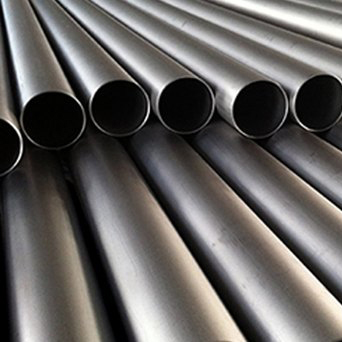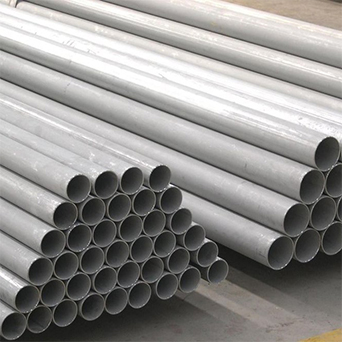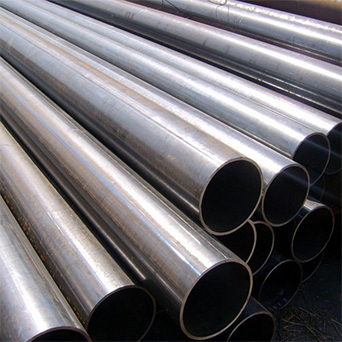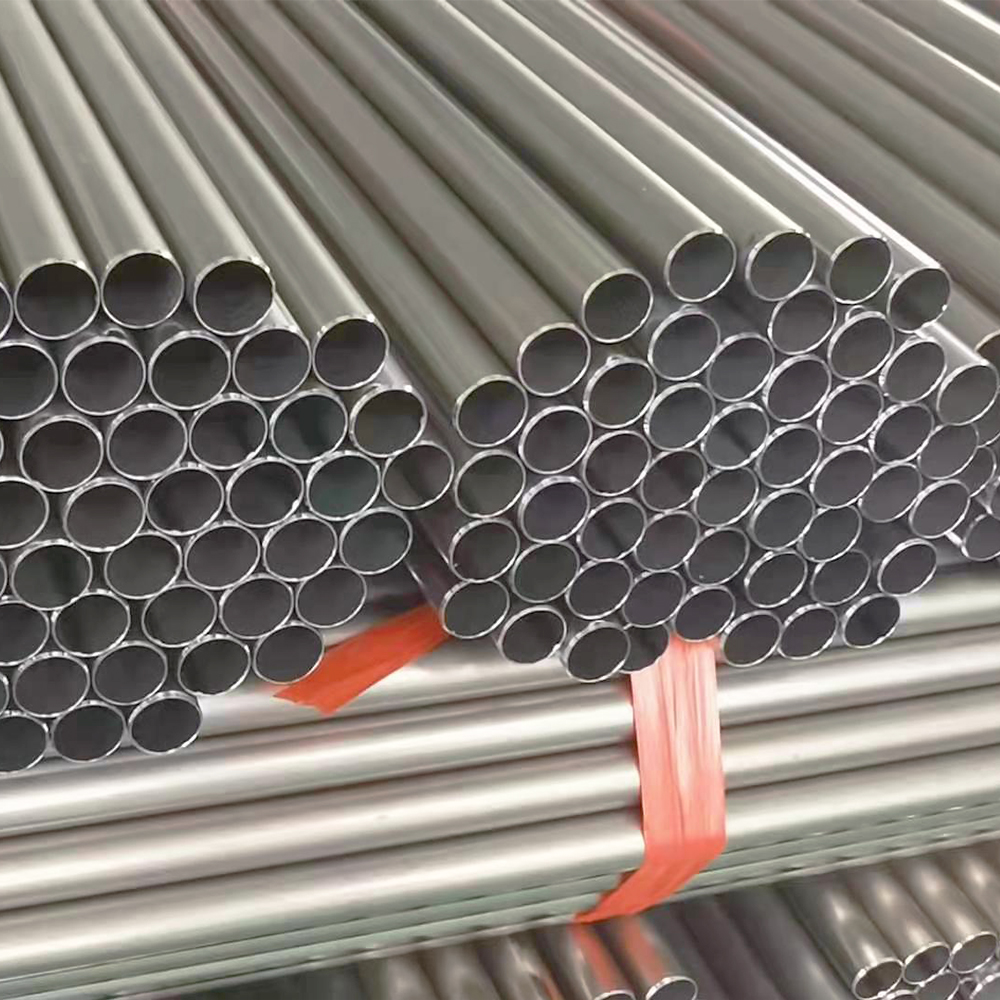Introduction
Titanium tubes are known for their excellent properties, including high strength, light weight, and exceptional corrosion resistance. These attributes make them valuable across a wide range of industries, from aerospace to chemical processing. This article explores the key features, diverse applications, and benefits of titanium tubes, helping readers understand why they are indispensable in high-performance environments.
What Are Titanium Tubes?
Titanium tubes are hollow cylindrical structures made from high-grade titanium. They are available in various diameters, wall thicknesses, and grades, and are used across multiple industries for their unique combination of properties. Titanium tubes can be manufactured through different processes, such as seamless and welded construction, depending on the specific needs of the application.
Titanium tubes stand out due to their ability to combine high performance with reduced weight, making them suitable for applications requiring both durability and efficiency. The production process ensures that titanium tubes are able to meet rigorous industry standards for quality and performance.




Key Features of Titanium Tubes
1. High Strength-to-Weight Ratio
Titanium tubes offer an excellent strength-to-weight ratio, providing significant mechanical strength while remaining much lighter compared to other metals. This makes them ideal for industries like aerospace and automotive, where reducing weight without sacrificing performance is critical.
2. Exceptional Corrosion Resistance
Titanium is naturally resistant to corrosion from a wide range of substances, including seawater, chemicals, and extreme environmental conditions. This makes titanium tubes particularly well-suited for marine, chemical processing, and industrial applications where exposure to harsh elements is frequent.
3. High Temperature Stability
Titanium tubes can withstand extreme temperatures without losing their strength or structural integrity, making them ideal for use in high-temperature environments. This characteristic is especially useful in aerospace engines, power generation, and chemical processing.
4. Biocompatibility
Titanium is biocompatible, meaning it is safe for use in medical applications where it may come in contact with the human body. Titanium tubes are used in implants, medical devices, and surgical instruments because of their non-toxic nature and compatibility with body tissues.
Applications of Titanium Tubes
1. Aerospace and Aviation
Titanium tubes are extensively used in the aerospace industry for their high strength, lightweight nature, and resistance to heat and corrosion. They are used in hydraulic systems, fuel lines, and structural components, contributing to improved fuel efficiency and overall performance of aircraft.
2. Medical Industry
In the medical field, titanium tubes are utilized in implants and surgical instruments due to their biocompatibility. They are also used in orthopedic devices, such as bone fixation rods and dental implants, providing safe, durable solutions for patients.
3. Marine Industry
The marine industry relies on titanium tubes for their exceptional resistance to seawater corrosion. They are used in applications like marine hardware, underwater structures, and desalination systems, ensuring long-term reliability in saltwater environments.
4. Chemical Processing
Titanium tubes are widely used in the chemical processing industry for their resistance to corrosion by aggressive substances. They are employed in heat exchangers, condenser tubes, and chemical reactors, ensuring durability in challenging conditions involving exposure to chemicals.
5. Automotive and Motorsport
In the automotive industry, particularly in high-performance and luxury vehicles, titanium tubes are used for components such as exhaust systems, suspension systems, and roll cages. Their strength and light weight contribute to better performance and efficiency.
Titanium Tube Grades and Their Uses
1. Grade 2 Titanium Tubes
Grade 2 titanium tubes are commercially pure and offer excellent corrosion resistance and ductility. They are commonly used in chemical processing, marine applications, and general industrial uses where formability and resistance to harsh conditions are required.
2. Grade 5 Titanium Tubes (Ti-6Al-4V)
Grade 5 is the most widely used titanium alloy, known for its high strength and good weldability. Grade 5 titanium tubes are used in aerospace, medical, and automotive applications where both strength and durability are paramount.
3. Grade 9 Titanium Tubes (Ti-3Al-2.5V)
Grade 9 titanium tubes provide a balance of strength, corrosion resistance, and formability, making them ideal for aerospace and industrial applications. They are suitable for parts requiring moderate strength and ease of installation.
Benefits of Using Titanium Tubes
- Durability: Titanium tubes are exceptionally durable, able to withstand extreme conditions and provide long service life, even in harsh environments.
- Lightweight: Their lightweight nature makes them ideal for applications where reducing weight is important, such as aerospace and automotive sectors.
- Corrosion Resistance: Titanium’s natural resistance to corrosion means it can be used in challenging environments without risk of rust or deterioration.
- Biocompatibility: Titanium tubes are safe for use in medical applications, making them a preferred choice for implants and surgical instruments.
Who Should Use Titanium Tubes?
Titanium tubes are suitable for manufacturers and industries that require strong, lightweight, and corrosion-resistant materials. Companies in aerospace, medical, marine, chemical processing, and automotive sectors can benefit greatly from the unique properties of titanium tubes. Their ability to withstand extreme conditions while maintaining performance makes them an indispensable material for many demanding applications.
FAQ Section
- What Are the Main Benefits of Titanium Tubes?
Titanium tubes offer a high strength-to-weight ratio, corrosion resistance, durability, and biocompatibility, making them suitable for demanding applications. - Why Is Titanium Used in Aerospace Applications?
Titanium’s lightweight and high-strength properties, along with its heat resistance, make it an ideal material for aerospace components such as hydraulic systems and fuel lines. - Is Titanium Safe for Medical Implants?
Yes, titanium is biocompatible, meaning it is non-toxic and does not react with bodily tissues, making it ideal for medical implants and devices. - How Does Titanium’s Corrosion Resistance Benefit Marine Applications?
Titanium’s resistance to seawater corrosion makes it ideal for marine hardware, underwater structures, and desalination systems. - What Are the Differences Between Grade 2 and Grade 5 Titanium Tubes?
Grade 2 is commercially pure titanium with excellent corrosion resistance, while Grade 5 is an alloy with higher strength, making it suitable for more demanding applications. - Can Titanium Tubes Be Used for Chemical Processing?
Yes, titanium tubes are highly resistant to corrosive substances, making them ideal for heat exchangers, condensers, and reactors in chemical plants. - What Applications Benefit Most from Grade 9 Titanium Tubes?
Grade 9 titanium tubes are often used in aerospace and industrial applications due to their balance of strength, corrosion resistance, and formability. - Why Are Titanium Tubes Used in Automotive Exhaust Systems?
Titanium tubes are lightweight and can withstand high temperatures, making them an excellent choice for automotive exhaust systems in high-performance vehicles. - Are Titanium Tubes Easy to Weld?
Yes, titanium tubes, particularly those made from Grade 5, have good weldability, making them suitable for various industrial applications. - How Do Titanium Tubes Compare to Stainless Steel Tubes?
Titanium tubes are lighter, stronger, and more corrosion-resistant compared to stainless steel tubes, making them ideal for high-performance and weight-sensitive applications. - What Makes Titanium Tubes Suitable for High-Temperature Applications?
Titanium’s high melting point and stability at extreme temperatures make it ideal for use in aerospace engines and chemical reactors. - Can Titanium Tubes Be Used in Heat Exchangers?
Yes, titanium tubes are often used in heat exchangers due to their excellent thermal conductivity and resistance to corrosion from aggressive media. - What Industries Benefit Most from Titanium Tubes?
Industries such as aerospace, medical, marine, chemical processing, and automotive benefit greatly from the unique properties of titanium tubes. - How Does the Lightweight Nature of Titanium Tubes Impact Their Use?
The lightweight nature of titanium tubes helps reduce the overall weight of structures, improving efficiency in aerospace, automotive, and other industries. - Why Is Titanium Preferred Over Other Metals for Marine Hardware?
Titanium’s superior corrosion resistance, especially in saltwater environments, makes it a preferred choice over other metals for marine hardware.
Conclusion
Titanium tubes provide numerous benefits, including high strength, light weight, corrosion resistance, and biocompatibility. Their versatility and durability make them suitable for a wide range of applications in industries such as aerospace, medical, marine, chemical processing, and automotive. Choosing titanium tubes ensures reliability, efficiency, and enhanced performance in demanding environments.






